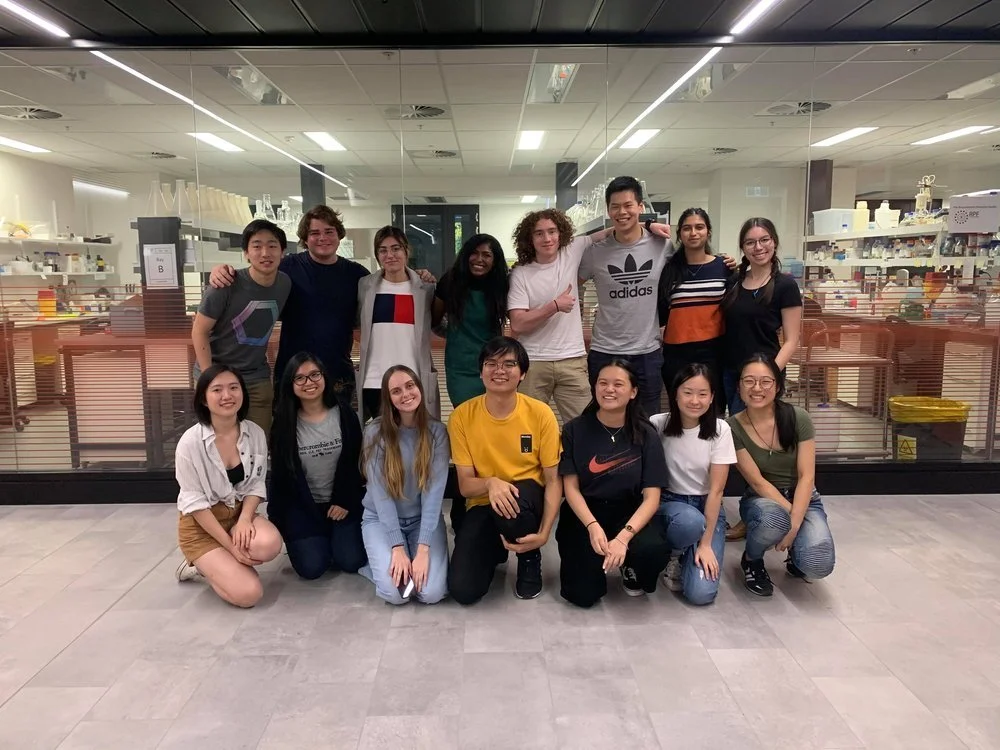Resilience and Learning Beyond Academic Research: Ari’s Story
“Beyond academia, I believe that everyone has a role to play in Synthetic Biology, such as policy-making or social responsibility to ensure the impact of Synthetic Biology is well implemented. To embark in the Synthetic Biology field, my suggestions for young generations would be to learn the fundamentals and innovations of Synthetic Biology, as well as bioethics, and then decide which role perfectly represents you as you progress through the journey.”
Featuring one of the alumni of Indonesia's pioneering iGEM team, who has been involved in iGEM for nearly a decade. Having overcome all of the obstacles during her time as a member of the ITB Indonesia team (Institut Teknologi Bandung) in 2013, particularly in terms of obtaining funding and convincing relevant stakeholders, has proven Ari’s resilience and a strong willingness to learn and get involved in Synthetic Biology. At the time, Indonesians were more aware of general Biology and Genetic Engineering rather than Synthetic Biology. This is where the iGEM ITB Indonesia, which consists of six students, began to raise awareness of Synthetic Biology in Indonesia along with the innovation and general knowledge behind it as well as what makes it a promising future and will be beneficial in the long run.
Solving A Local Problem: iGEM ITB Indonesia 2013
The team tried to come up with project ideas based on a current problem in their home country. Realizing that Indonesia is heavily dependent on food and agriculture, which has a strong culture in it, they discovered a lack of awareness in ensuring the food safety of agricultural products, such as maize, fermented foods, or even animal feeds, as most of them may contain aflatoxin, a toxin that may result in health issues for the consumer. Consuming contaminated products results in people getting food poisoning and being hospitalized. This problem has been recognized for a long time but no action or prevention measures have been taken. This has inspired the team to develop a biosensor detection system for aflatoxin in agriproducts that would assist farmers and other stakeholders in identifying it quickly and appropriately, especially in rural areas where the aflatoxin detection using sophisticated equipment is not accessible.
The challenges didn’t end there. After securing the funding from the school, they faced many setbacks during the research such as logistics, which were a major issue; in order to have the research product ready, they would need to go through an eight-week pre-order process, as well as a lack of facilities, which forced them to come up with ways to confirm their findings and construct a prototype.
The Next Adventure
Later on, iGEM has been a great experience to Ari, who didn’t end her involvement with it, Ari became a mentor to several iGEM teams in the next few years. Importantly, iGEM has introduced her to more innovative strategies and ideas in engineering microorganisms as well as breakthrough applications. This fascinates her, and has inspired her to pursue her PhD studies in Synthetic Biology at Imperial College London (UK).
During her PhD, Ari was involved in the IGEM measurement track. iGEM has also brought her to her current job as a research fellow at CNRS@CREATE Ltd. (France-Singapore).
CNRS@CREATE Ltd. is the first overseas subsidiary of The French National Center for Scientific Research (CNRS) in Singapore. Ari is currently part of CNRS@CREATE Ltd. research fellows who are assigned to The Agency for Science, Technology, and Research (A*STAR) Singapore. Her research focuses on bacterial engineering to sense lights, sometimes known as optogenetics, and venturing to its future metabolic engineering applications, notably directing the metabolic pathway through light-controllable gene expression and activity.
Synthetic Biology: Beyond the Academia
“Beyond academia, I believe that everyone has a role to play in Synthetic Biology”
Having been involved in the field for more than ten years and active in various areas of synthetic biology research. Ari shared her view in synthetic biology in the Southeast region.
“We are still lagging behind in terms of technology adoption and real-world applications. I've observed how the Southeast region has a wide range of opportunities and resources, and how we're fast expanding our exploration of the region's untapped potentials, and how the process of embracing technology isn't far off. In terms of human resources, I would define it into two categories: researchers and the general public. To begin, the researchers must be more rigorous in developing relationships and technology exchanges with other regions, as well as additional strategizing on how it can be implemented in our country or region. Furthermore, education for the public should be greatly encouraged, such as incorporating synthetic biology educational kits into the educational curriculum commencing in kindergarten, as well as how we are communicating a larger social responsibility and raising public awareness in Synthetic Biology applications in surroundings, including bioethics.”
“To sum up, iGEM means a lot to me; it's been an incredible experience for me that has helped me grow to where I am now. I'm hoping that the impact will be noticed and incorporated into society very quickly.”







